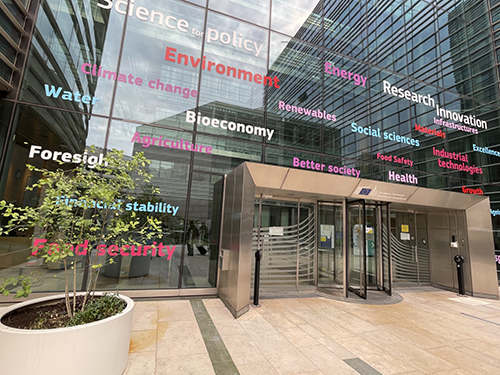Climate Food (In)security Lab

Our Lab asks how countries can improve food and nutritional security in an increasingly climate-insecure world. Climate change is recognised as the greatest threat to human health in the 21st century. And in many lower-income countries this will in part be manifested in increasing food insecurity and under-nutrition. Heat, heatwaves, and drought, are increasingly affecting both food production and food systems, and people’s ability to afford a balanced and nutritious diet, and to utilise nutrients effectively. Building an evidence base through analysis of high-quality secondary data and working closely with experts and policy makers in lower-income countries, we are determining “what works” with respect to enhancing food and nutritional security, and how to implement equitable and high-impact potential interventions.
Project partners
- Euro-Mediterranean Centre on Climate Change (CMCC)
- Pamoussa Ouedraogo, Permanent Secretary of the National Council for Sustainable Development, Ministry of Environment, Water, and Sanitation, Burkina Faso.
Student MSc dissertations
- Lucia Letsch: The impacts of climate change on food insecurity in Nigeria
- Lauren O’Leary: Investigating the impacts of climate and weather shocks on food security and nutrition in Tanzania
- Deyan Pehlivanov: Impact of climate change on food security in Kenya
- Charlotte Panhuyzen: Climate, weather, and food insecurity in Uganda – MSc Environmental Economics and Climate Change Best Dissertation Prize 2023
Peer reviewed relevant documents
- Dasgupta, S. & Robinson, E.J.Z. (2024). Climate, weather, and child health: quantifying health co-benefits, Environmental Research Letters, 1748-9326.
- Robinson E J Z. Climate friendly public health policies make economic sense BMJ 2023; 383: p2236 doi:10.1136/bmj.p2236
- Dasgupta, S. & Robinson, E.J.Z. (2023) Climate, weather and child health in Burkina Faso. Australian Journal of Agricultural and Resource Economics, 00, 1–27.
- Dasgupta, S., Robinson, E.J.Z. Attributing changes in food insecurity to a changing climate. Sci Rep 12, 4709 (2022).
- Dasgupta, S., Robinson, E.J.Z. Impact of COVID-19 on food insecurity using multiple waves of high frequency household surveys. Sci Rep 12, 1865 (2022).
- Dasgupta, S., & Robinson, E. (2021). Improving food policies for a climate insecure world: evidence from Ethiopia. National Institute Economic Review, 258, 66-82.
- Dasgupta, S. & Robinson, E.J.Z. (2021) Food insecurity, safety nets, and coping strategies during the COVID-19 pandemic: multi-country evidence from sub-Saharan Africa. International Journal of Environmental Research and Public Health, 18 (19). ISSN 1661-7827
- Manzoor, Syed Amir, Geoffrey Hugh Griffiths, Elizabeth Robinson, Kikuko Shoyama, and Martin Lukac. 2022. “Linking Pattern to Process: Intensity Analysis of Land-Change Dynamics in Ghana as Correlated to Past Socioeconomic and Policy Contexts” Land 11, no. 7: 1070.
Policy briefs and reports
- Robinson, E.J.Z., Ouedraogo, P., Ouoba, P., Dasgupta, S. (2024). Improving food security and child health in Burkina Faso in a changing climate. Grantham Research Institute on Climate Change and the Environment Policy Brief.
- O’Leary, L., Dasgupta, S., Robinson, E.J.Z. (2024). Tackling the impacts of climate change on food security in Bangladesh. Grantham Research Institute on Climate Change and the Environment Policy Brief.
- Letsch, L., Dasgupta, S., Robinson, E.J.Z. (2023). Adapting to the impacts of extreme heat on Bangladesh’s labour force. Grantham Research Institute on Climate Change and the Environment Policy Brief.
- Robinson E.J.Z., Dasgupta, S., and Bian, L. (2023) Submission to the UK Environmental Audit Committee’s Inquiry into Environmental Change and Food Security. Grantham Research Institute, LSE.
- Climate Vulnerable Forum and V20. (2022). Climate Vulnerability Monitor, 3rd Edition: A Planet on Fire. Report commissioned by the Climate Vulnerable Forum (CVF) and the Vulnerable Twenty (V20) Group.

